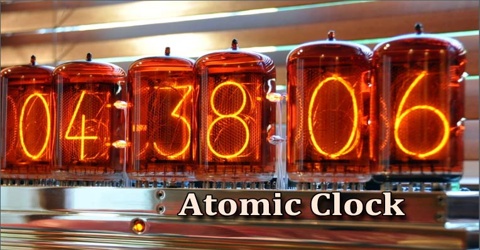What is National Atomic Time Scale?
The Prime Minister Narendra Modi recently inaugurated the National Atomic Scale at the National Meteorology Conclave.
What is Atomic Time?
Atomic Time provides the exact speed at which the clock ticks. In technical words, it measures the actual length of a second. Atomic Clocks deviate only one second in up to 100 million years.
The International System of Units (SI unit) define one second (in atomic time) as the time taken by the Cesium-133 atom in the ground state to oscillate 9,192,631,770 times. In simple words, the atomic clocks count one second after the Cesium-133 atom has oscillated 9,192,631,770 times.
What is the significance of National Atomic Time?
With the newly inaugurated National Atomic Time, India has become self-reliant in measuring time within the range of nanosecond. It has now achieved the accuracy level of 2.8 Nanosecond matching the International Standard Time.
Why is Atomic Time so important?
Reaching an accuracy of 2.8 Nanoseconds in atomic time is of great help to ISRO. Atomic time pay huge role in cutting edge technology. Also, accurate atomic time measurement is essential in the field of weather forecast, disaster management, telecom, Defence, Railways and Banking.
What is International Atomic Time?
It is calculated by taking weighted average of more than 300 atomic clocks. These clocks are located at more than sixty timing laboratories around the world. It is also called Astronomical time that refers to the Earth rotation. It is computed by the International Bureau of Weights and Measures (BIPM) located in Paris, France.
What is Universal Time?
The Universal Time is the time standard based on the rotation of the earth. This is was in use for several decades. However, this is not accurate as the earth’s rotation is not constant and is affected by the celestial bodies around it. The Greenwich Meridian Time is a Universal Time.
Month: Current Affairs - January, 2021








